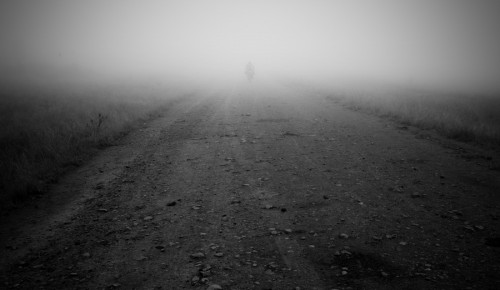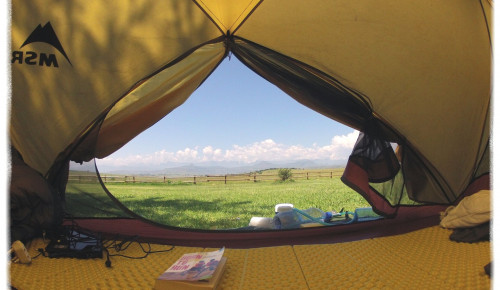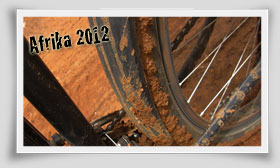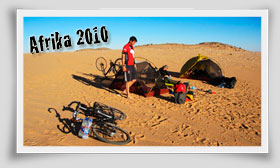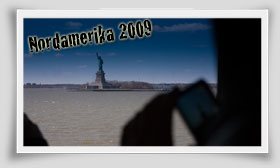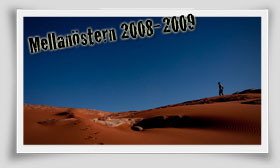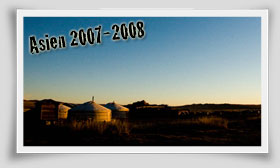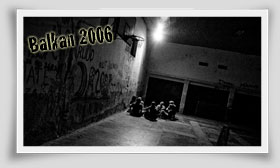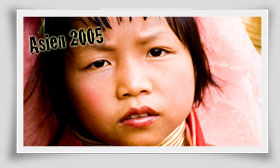Carcinogens may cause cancer by altering cellular metabolism or damaging DNA directly in cells, which interferes with normal biological processes. The World Health Organisation said processed meats are among the most carcinogenic substances along with cigarettes, alcohol, sunbeds and arsenic. Carcinogens (substances that cause cancer) are around us every day. 27 Coal tars: Coal tar, a bi-product of coke production, contains many chemical compounds, including benzene. Examples include ham, bacon and sausages. Studies of PCBs in humans have found increased rates of melanomas, liver cancer, gall bladder cancer, biliary tract cancer, gastrointestinal tract cancer, and brain cancer, and may be linked to breast cancer. 1. Here are some of the most common carcinogens, and how to avoid them. Reply: No. 6 Boot and shoe manufacture and repair: Linked to increased risk of nasal cancer and leukaemia, due to exposure to suspected carcinogens such as leather dust, benzene and other solvents, yet the risk of cancer in shoe manufacturing may vary depending on the duration and level of exposure. We might not notice every time a cell is damaged, but it can end up causing problems. Cans of beer on display in an off-licence. Most carcinogens are objects that cause damage to cells in the human body. A study found there to be an excess of bladder tumours among men engaged in the manufacture of auramine, through inhaling harmful agents, such as formaldehyde and sulphur, during the manufacturing process. They can be divided into three major categories: chemical carcinogens (including those from biological sources), physical carcinogens, and oncogenic (cancer-causing) viruses. Learn more about the topics in this list in the IARC monographs at https://monographs.iarc.fr/cards_page/publications-monographs/. Substances like cancer-causing foods usually contain some form of carcinogenic property. Deaths such as bladder cancer and leukaemia in such cases could have been from an exposure to benzene – a chemical at high levels that can cause cancer and found in paint production – mixed with other organic solvents. It’s estimated that every year, secondhand smoke kills over 12,000 people in the UK from lung cancer, heart disease, stroke and the lung condition chronic obstructive pulmonary disease. Talk to your doctor to make sure you absolutely need an x-ray. 7 Chimney sweeping: Cleaning chimneys of soot and dust, historically done by small boys who could climb the chimney but now done mechanically, could cause a very specific form of cancer – termed “chimney sweep” cancer. The IARC splits the list into three categories, which it calls “exposure circumstances”, “mixtures” and “agents”. 10 Coke (fuel) production: Workers at coking plants and coal-tar production plants – where coal is refined to be used as a solid fuel – may be exposed to coke oven emissions, and have an excess risk of dying from lung cancer and kidney cancer. After Monday’s bombshell news from the World Health Organisation that bacon, ham and sausages are carcinogenic, you can be forgiven for wondering just what exactly is safe for you to come into contact with – let alone eat. Treosulfan is a cancer drug in the group of alkylating agents. 11 Furniture and cabinet making: Furniture makers are shown to have a statistical increase in nasal cancer risk, with excessive exposure to wood dust, according to studies. Call: 1890 289 389 9:00am to 3:00pm, Monday to Friday. Formaldehyde. However, being aware of things that we, as society, are pretty sure lead to cancer gives us the knowledge to decide if each item if worth the risk, and if so, to use it in moderation. IARC also produces science-based reports on substances that can increase the risk of cancer in humans. It is important to petition for and buy foods made from crops that are treated with only natural substances that do not hide health hazards whenever possible. 24 Betel quid without tobacco: A leaf indigenous to Asia, is chewed with areca nut as a stimulant and can increase the risk of oral cancer. 1. While these foods are not carcinogens themselves, it what is done to them that makes the final product less healthy. Life is about what happens before that | JC Johnson, ‘It’s scaremongering’: the world’s meatiest places react to WHO report, Food industry greets cancer links with a shrug – it's been here before, Addictive and probably carcinogenic: scientist reveals dangers of Daily Mail | Dean Burnett, Health threat of sugar is vastly underestimated, study claims. Overwhelmed by information overload and contradicting research, it’s no surprise that it is hard not to get discouraged when trying to eat healthy. Acheson process, occupational exposure associated with 3. X-rays add to the risk of developing cancer later in life. This cumulative report currently includes 248 listings of agents, substances, mixtures, and exposure circumstances that are known or reasonably anticipated to cause cancer in humans. These foods can be very high in nitrates and nitrites, which react with protein to form nitrosamines. Four substances have been added in the U.S. Department of Health and Human Services 13th Report on Carcinogens, a science-based document that identifies chemical, biological, and physical agents that are considered cancer hazards for people living in the United States. Smoking’s history dates back to as early as 5000–3000BC when the agricultural product began to be cultivated in South America. Carcinogens … Ortho-toluidine, used to make rubber chemicals, pesticides, and dyes, has been reevaluated and is now listed as a kno… Aluminum production 7. 4 Arsenic in drinking water: The highly toxic chemical which is used to make certain alloys used in the manufacturing industry, can get into the drinking water supply, particularly in ground water. Here are some of the most common carcinogens, and how to avoid them. 14 Iron and steel founding: Studies of iron and steel founding workers in various parts of the world showed them to have a significantly increased risk for lung cancer. 21 Naturally occurring mixtures of aflatoxins: Such toxins produced by certain species of fungi, are among the most carcinogenic substances known, and linked to increased risk of liver cancer. It’s hard not to salivate at the thought of a juicy, perfectly cooked steak. Examples include: 1. Formaldehyde is used in many beauty products as a preservative and antibacterial agent. Silica dust: is dust that is created during construction when working with concrete, drywall, masonry, and some countertops, and can lead to lung cancer. In industry, there are many potential exposures to carcinogens. 42 Aristolochic acids and plants containing them, 50 Chlornapazine (N,N-Bis(2-chloroethyl)-2-naphthylamine), 54 1,4-Butanediol dimethanesulfonate (Busulphan, Myleran), 57 Methyl-CCNU (1-(2-Chloroethyl)-3-(4-methylcyclohexyl)-1-nitrosourea; Semustine), 60 Contraceptives, hormonal, combined forms (those containing both oestrogen and a progestogen), 61 Contraceptives, oral, sequential forms of hormonal contraception (a period of oestrogen-only followed by a period of both oestrogen and a progestogen), 72 Etoposide alone and in combination with cisplatin and bleomycin, 76 Hepatitis B virus (chronic infection with), 77 Hepatitis C virus (chronic infection with), 78 Herbal remedies containing plant species of the genus Aristolochia, 79 Human immunodeficiency virus type 1 (infection with), 80 Human papillomavirus type 16, 18, 31, 33, 35, 39, 45, 51, 52, 56, 58, 59 and 66, 81 Human T-cell lymphotropic virus type-I, 83 Methoxsalen (8-Methoxypsoralen) plus ultraviolet A-radiation, 84 4,4’-methylene-bis(2-chloroaniline) (MOCA), 85 MOPP and other combined chemotherapy including alkylating agents, 90 4-(N-Nitrosomethylamino)-1-(3-pyridyl)-1-butanone (NNK), 92 Opisthorchis viverrini (infection with), 94 Particulate matter in outdoor air pollution, 96 Plutonium-239 and its decay products (may contain plutonium-240 and other isotopes), as aerosols, 97 Radioiodines, short-lived isotopes, including iodine-131, from atomic reactor accidents and nuclear weapons detonation (exposure during childhood), 98 Radionuclides, α-particle-emitting, internally deposited, 99 Radionuclides, β-particle-emitting, internally deposited, 104 Schistosoma haematobium (infection with), 105 Silica, crystalline (inhaled in the form of quartz or cristobalite from occupational sources), 109 2,3,7,8-tetrachlorodibenzo-para-dioxin, 110 Thiotepa (1,1’,1”-phosphinothioylidynetrisaziridine), 111 Thorium-232 and its decay products, administered intravenously as a colloidal dispersion of thorium-232 dioxide, Processed meats rank alongside smoking as cancer causes – WHO, How bad is meat for me? 3 Aluminium production: Increased lung and bladder cancer risks have been reported in workers in aluminium reduction plants. Over 30 components of diesel oil are listed at various levels of carcinogenic by the IARC. Areca nut 9. Carcinogens are classified in a number of different ways as to the likelihood that they truly cause cancer, and whether this is known or only suspected. 18 Paving and roofing with coal-tar pitch: Paving with coal tar and coal-tar pitch may contain many chemical compounds, including carcinogens such as benzene. As the cancer rates have continued to rise to 1-in-2 for men, and 1-in-3 for women, I have personally seen many people hopelessly say, “Everything now causes cancer.”. This includes smoking and chewing it as well as inhaling second-hand tobacco smoke. 19 Rubber industry: Harvested mainly in the form of the latex from certain trees, the manufacturing process of stretchy material can cause the risk of developing cancer, caused by chemicals. 36 Soots: Coal dust, principally from the burning of coal, had contributed to a … There are over 100 known or Group 1 carcinogens and many more probable or possible carcinogens. Alcoholic beverages Ethanol (in alcoholic drinks) Tobacco, smokeless Tobacco smoke, secondhand Tobacco smoking Vinyl chloride is used to make a polymer for plastic products such as packaging materials, wire insulation, and pipes. Diesel exhaust produced during the operation of diesel powered vehicles and plant, for example a diesel powered forklift left idling indoors when loading or unloading. What we are looking at is group 1, because all items in it are almost 100% proven to be carcinogenic. Any time a cell has to repair itself or grow a new cell, there is a small chance of the cell mutating into cancerous cells. Here are 5 that are commonly released (as VOCs or SVOCs) into the air in your home from the products you use every day. Rocked by the news that processed meat could be terribly bad for you? Well, chimney sweeping, salted fish and fracking also appear on the list compiled by the International Agency for Research on Cancer, Last modified on Wed 14 Feb 2018 18.20 GMT. Nov. 4, 2016 -- Seven substances have been added to the list of known human carcinogens, bringing the total number to 248, a U.S. Department of Health and Human Services report says. Benzene, acrylamide, and formaldehyde are all listed by the IARC as human carcinogens. Peanut and shrimp by themselves are safe, but it’s the present of specific chemicals in them that can make them carcinogenic. Substances, mixtures, and exposure circumstances in this list have been classified as Group 1 by the International Agency for Research on Cancer (IARC): The agent (mixture) is carcinogenic to humans.The exposure circumstance entails exposures that are carcinogenic to humans. It can also be found in cigarette fillers. Acetaldehyde: this carcinogen is produced in the liver after it breaks down alcohol, and is greatly responsible for feeling hangover. Benzene, acrylamide, and formaldehyde are all listed by the IARC as human carcinogens. Read on for more. 23 Areca nut: Areca nut is a mild stimulant, akin to coffee, that is chewed with betel leaf. The good news is – there are significantly more things that are not carcinogenic or capable of healing the body and defective cells, than there are those that are carcinogenic. Chemical carcinogens include carbon electrophiles, which attack DNA. In 2011 a cabinet maker’s widow successfully sued for £375,000 after her husband’s death. Acid mists, strong inorganic 4. The colourless, flammable chemical compound with a strong odour has a wide variety of industrial, household and pharmaceutical uses. Mechanisms of carcinogenicity. Processed meat: hot dogs, ham, bacon, sausage, and some deli meats Salted fish (Chinese-style): levels of N-nitrosodimethylamine were detected in studies of uncooked fish, which has been linked to digestive tract cancers when eaten excessively. 26 Coal-tar pitches: This thick black liquid contains many chemical compounds, including carcinogens such as benzene. 31 Phenacetin, analgesic mixtures containing: Studies on this pain- and fever-reducing drug, now banned in some countries link it with renal, pelvic and other urothelial tumours in patients. Azathioprine is a pharmaceutical used for arthritis, Crohn’s disease, and ulcerative colitis. This is, of course, not the complete picture of what causes cancer. Cancer can be caused if a carcinogen damages a person’s DNA cells to the point of being irreparable. 2. Shellfish can contain cadmium, a toxic and cancer-causing metal. These chemicals can damage DNA. 1. Tables Z-1, Z-2, and Z-3 are not intended to be lists of chemicals that OSHA recognizes as carcinogens or potential carcinogens for hazard communication purposes. Many forms of tobacco exposure are carcinogenic. Aflatoxins 5. Carcinogens are any materials linked to increased cancer rates. 29 Diesel exhaust: There is a cancer risk from inhaling exhaust fumes produced by a diesel internal combustion engine. You can be exposed to carcinogens through a variety of avenues, including lifestyle factors (nutrition, tobacco use, etc. Exposures in the iron and steel founding industry are complex and include a wide variety of known genotoxic and carcinogenic substances including metals and formaldehyde. Human exposure to coal tars can be through inhalation, ingestion, and absorption through the skin. Alcoholic beverages 6. List of Classifications by cancer site (PDF file) French version of the List of classifications by cancer site, as hosted by Centre Léon Bérard; See Preventable Exposures Associated With Human Cancers (Cogliano et al., 2011) Although care was taken in … Jul 13, 2015 Experts say that cigarette smoke contains over 4000 different compounds. Asbestos and substances containing it: the most important one to know is talc – often found in makeup and baby powder (One popular company, Johnson and Johnson, recently got sued because their baby powder caused cancer). Use our (01) 6147000 number to avoid possible additional charges from your mobile operator. Potent carcinogens found in cigarette smoke include polycyclic aromatic hydrocarbons (PAH, such as benzo(a)pyrene), benzene, and nitrosamine. 9 Coal tar distillation: Derived from coal, coal-tar pitch is a thick black liquid that remains after the distillation of coal tar. Thiotepa is an alkylating cancer drug. The substances listed below are among the most likely carcinogens to affect human health, according to the National Toxicology Program's 14th Report on Carcinogens. Grilling or frying food, in particular, can produce carcinogens such as acrylamide (in french fries and potato chips) and polynuclear aromatic hydrocarbons (in grilled meat). Frankly, the experts don't know, I’m not giving up my ham and mustard sandwich | Ann Robinson, Ground to dust: fracking, silicosis and the politics of public health, Something is going to kill you. And even then, all carcinogenic items have different levels of toxicity and may never cause cancer unless the person’s body is absorbing a high number of these carcinogens, whether it is through food, chemicals, or environmental pollution. Arsenic is known to cause skin cancer, and linked to causing liver, lung, kidney, and bladder cancer. Always get natural household cleaners. Red meat isn’t on the list – that only probably causes cancer. 36 Soots: Coal dust, principally from the burning of coal, had contributed to a specific chimney sweep cancer that was prevalent in the 19th century. The 2016 edition lists 62 known human carcinogens and includes descriptions of the process for preparing the science-based report and the criteria used to list a substance as a carcinogen. Both coal tar and coal-tar pitch contain many chemical compounds, including carcinogens such as benzene. Ultraviolet-emitting tanning devices The full list of human carcinogens can be found the American Cancer Society website. Acetaldehyde (from consuming alcoholic beverages) 2. A police officer stands guard on the perimeter of the hydraulic fracturing test site operated by Cuadrilla in Balcombe, England. THESE Artificial Colors Can Raise Your Cancer Risk…, Potential Carcinogens, Neurotoxins, and Seizure-Causing Chemicals in the Flu Vaccine (full breakdown of ingredients), eval(ez_write_tag([[580,400],'althealthworks_com-medrectangle-1','ezslot_11',104,'0','0']));report this ad comments, Soy-Free, and Gluten-Free, Vegan Style Battered “Fish” is Possible with This Popular Asian Flower and Superfood. Aristolochic acid (and plants containing it) 10. Highly refined oils are classified as group-3, meaning they are not suspected to be carcinogenic, yet due to insufficient findings, cannot be classified as harmless. 33 Polychlorinated biphenyls (PCBs): This synthetic compound, widely used in electrical equipment in the past, was banned at the end of the 1970s in many countries because of environmental concerns. 28 Indoor emissions from household combustion of coal: Coal is one of the most well-known carcinogens in the public consciousness, due to the prevalence of cancer in miners. 16 Magenta dye manufacturing: The production of magenta dyes – purplish-red in colour and among the first synthetic dyes to be produced in the 1850s – has chemicals linked to bladder cancer. If you are remodeling or building your home, make sure whoever is working on it is aware of this hazard and is following safety guidelines by the Occupational Safety and Health Administration (OSHA). Instead, always choose talc-free baby powder. Lindane: pharmaceutical products including a shampoo used to treat lice and scabies Melphalan: chemotherapy drug Semustine: chemotherapy drug Estrogen-progestogen oral contraceptives Sulfur mustard: formerly used in warfare, now is a cancer drug under the names of Mechlorethamine and Mustargen Tamoxifen is a drug used to treat breast cancer. Check the labels on those products to see if this chemical is present. 8 Coal gasification: Studies of the cancer levels of workers who had occupational exposure to coal gasification – when coal is reacted with oxygen, steam and carbon dioxide to form a gas – showed there to be an excess of lung cancer. X-radiation and gamma radiation: sometimes x-rays are given when not medically necessary. 37 Smokeless tobacco products: Tobacco chewed as a stimulant, sometimes with other leaves such as betel, is specifically linked to cancers of the larynx and the mouth. The general population can be exposed to coal tars in environmental contaminants. 30 Mineral oils, untreated and mildly treated: The World Health Organisation classifies untreated or mildly treated mineral oils as group-1 carcinogens to humans. 39 Processed meat: Meat that is cured or treated in some way, either for preservation or taste. Carcinogens that occur as a by-product of a work process must also be considered when identifying hazards in the workplace. 32 Plants containing aristolochic acid: Used in Chinese herbal medicine for centuries, this plant extract is found to cause kidney disease and urothelial cancer. Yet some carcinogenic chemicals were banned from hair dyes in the 1970s. 34 Chinese-style salted fish: Diets that are very high in salt-cured meats and fish, or pickled foods – which are more common in parts of Asia and northern Africa – can increase the risk of nasopharyngeal cancer, related to the upper part of the throat behind the nose. These carcinogens are a cancer-causing substance which can be found in the numerous everyday items. 35 Shale oils: The development of shale gas, including fracking, may release toxic chemicals into air, water and soil during the process. Arsenic and inorganic arsenic: the FDA allows some amounts of arsenic to be in food. It is a risk if coal dust produced from old-fashioned coal-burning fires is inhaled. A large number of known carcinogens are found in cigarette smoke. When analyzing carcinogenetic foods or toxins, WHO uses five groups for classification: Group 1: Carcinogenic to humans 22 Alcoholic beverages: Alcoholic beverage consumption is a cause of breast, colorectal, larynx, liver, oesophagus, oral cavity and pharynx cancers, and as a probable cause of pancreatic cancer, as classified by the IARC. Moreover, it can take a long time for cancer to be detected. Trichloroethylene is found in some adhesives, rug cleaners, paint removers, spot removers, and typewriter correction fluids. Loading… It is known to cause increased risk of mouth and oesophageal cancer. Agency for Toxic Substances and Disease Registry, 4770 Buford Hwy NE, Atlanta, GA 30341 Contact CDC: 800-232-4636 / TTY: 888-232-6348 It could be caused by inhalation and accidental ingestion of coal and burnt wood fumes and residue. General Information about Carcinogens What cancer patients, their families, and caregivers need to know about the coronavirus . 12 Haematite mining (underground) with exposure to radon: Mining hematite, an underground source of iron, workers are simultaneously exposed to radon – a radioactive carcinogen, which can cause a large increase in the risk of lung cancer. Learn how potential carcinogens are tested and classified, find lists of known and possible carcinogens, and learn about cancer clusters. Arsenic and inorganic arsenic compounds 11. 25 Betel quid with tobacco: Betel can increase the risk of oral cancer. The fumes of chemicals the workers may inhale, and exposure to coal-tar pitch volatiles for long periods during the process, can cause cancer. 17 Occupational exposure as a painter: Studies have found a link between work as a painter and risk of cancer. Chemicals used in fracking are known to be of concern and have been linked to an increased risk of cancer. The following is a list of substances NIOSH considers to be potential occupational carcinogens.A number of the carcinogen classifications deal with groups of substances: aniline and homologs, chromates, dintrotoluenes, arsenic and inorganic arsenic compounds, beryllium and beryllium compounds, cadmium compounds, nickel compounds, and crystalline forms of silica. Isopropyl alcohol solution is found in rubbing alcohol, hand sanitiser, and disinfecting pads. Handily, the International Agency for Research on Cancer – a body that collects and publishes cancer figures worldwide – has a list of the 116 substances and activities (for some of them are more verb than noun) that are now considered to cause cancer. Studies examining countries with workers in the rubber industry showed they were more likely to have cancers such as bladder cancer, lung cancer, and leukaemia. Hazelwood coal mines in Morwell, Australia. A woman wears a mask in front of Harbin railway station in China as thick smog envelops the city. 13 Secondhand smoke: Otherwise known as passive smoking, a non-smoker’s risk of getting lung cancer can increase by a quarter by breathing in other people’s smoke. 5 Auramine production: Auramine can be used as an antiseptic agent as well as to make dyes. While carcinogens like cigarettes should be avoided altogether, foods like red meat have some benefits, too. 38 Wood dust: Awareness of wood dust as a carcinogen and cause of nasal cancer is on the rise. eval(ez_write_tag([[970,250],'althealthworks_com-box-4','ezslot_5',102,'0','0']));Aflatoxins: these are fungi toxins that are used on crops. Tobacco smoke carcinogens, DNA damage and p53 mutations in. 3. Direct acting carcinogens, which can cause cancer as is. 1. The Report on Carcinogens is a congressionally mandated, science-based, public health document that NTP prepares for the HHS Secretary. The foods that may be contaminated with aflatoxins are: peanuts, corn, milk products, nuts, grains, soybeans, and figs. Formaldehyde is also found in some vaccines. 1 Tobacco smoking: The most common exposure to the stimulant, prepared from the leaves of the tobacco plant, is through burning it and smoking it from a cigarette or hookah pipe into the mouth and then releasing it. 20 Occupational exposure of strong inorganic acid mists containing sulphuric acid: The liquid aerosols formed by condensation of sulphuric acid vapour, which is highly corrosive, can cause a higher risk of getting lung cancer. most abundant ones, tar, nicotine carbon monoxide are at the bottom of this list: It is a known carcinogen, especially for lung and skin cancers.. .. How to Make It… (video), Wisconsin Company Will Microchip Their Employees During a “Chip Party”, Ultraviolet-emitting tanning devices cancer. 4-Aminobiphenyl 8. Cases of lung cancer may be from exposure to particles containing lead chromate and to asbestos in the paint trade. Due to the high call volumes we’re currently experiencing, there may be a delay in answering your call. Formaldehyde is found in many household items from paper towels and pillows to furniture and toothpaste. PHOTO: Pixabay. The new report now includes 243 listings. Carcinogenic foods are the source of a substance called carcinogen. PCBs are known to cause a variety of cancers in animals. Cooking and processing foods can produce carcinogens. The 2016 edition lists 62 known human carcinogens and includes descriptions of the process for preparing the science-based report and the criteria used to list a substance as a carcinogen.IARC also produces science-based reports on substances that can increase the risk of cancer in humans. But cancer can also be caused by inherited genetic mutations. Wood dusts produced when timber is cut, sanded or machined. Wikimedia Commons has media related to IARC Group 1 carcinogens The main article for this category is List of IARC Group 1 Agents - Carcinogenic to humans . It is commonly found in rice, apple juice, and chicken. A list of known human carcinogens by The International Agency for Research on Cancer (IARC) – a part of the World Health Organization (WHO) – comes in handy. Carcinogens are substances or factors that can cause cancer. IARC Monographs on the Identification of Carcinogenic Hazards to Humans. FDA Bans 3 Cancer-Causing Chemicals, Ignores Dozens More – Here Are the Products You Need to Avoid, The Rainbow You Should Never Eat! List of Classifications. Wood dust: follow safety guidelines when working with wood, decorative hardwood veneer, plywood and engineered wood flooring. A tiger shark in formaldehyde (The Kingdom by Damien Hirst). Some carcinogens directly modify DNA to create cancer, while others cause cells to multiply at a faster than normal rate, increasing the chances of mutation. Examples can include chemicals, medical or environmental radiation, some viruses, lifestyle factors, and even some medications. The tough, tiny fibers in asbestos help strengthen products like roof shingles, ceiling tiles, and car parts. Simply because a substance has been designated as a carcinogen, however, does not mean that the substance will necessarily cause cancer. Certain carcinogens, for example, do not directly lead to DNA damage; however, they can lead to more rapid cell division that increases the chances of mutation. Some cosmetic products such as makeup and talc-based baby powder contain potential carcinogens. A worker taps a rubber tree in Songon, Ivory Coast. It is used as a base for coatings and paint, in roofing and paving, and as a binder in asphalt products. Cadmium is a toxic metal, and it can be found in shellfish, and organ meat. It was ranked as dangerous as tobacco in October 2015 by the World Health Organisation (WHO), with specific links to bowel cancer. Carcinogens are agents that can cause cancer. 2 Sunlamps and sunbeds: A tanning bed, a device that emits ultraviolet radiation for a cosmetic tan, can give humans overexposure to UV radiation, which can cause skin cancer, cataracts, and premature skin ageing. Here is a list of top 10 foods carcinogenic foods to avoid to stay clear of cancer risk. eval(ez_write_tag([[728,90],'althealthworks_com-medrectangle-3','ezslot_6',124,'0','0']));When analyzing carcinogenetic foods or toxins, WHO uses five groups for classification: Group 1: Carcinogenic to humans Group 2A: Probably carcinogenic to humans Group 2B: Possibly carcinogenic to humans Group 3: Unclassifiable as to carcinogenicity in humans Group 4: Probably not carcinogenic to humans. Asbestos (… 15 Isopropanol manufacture (strong-acid process): People in the isopropanol manufacturing industry may face an increased risk of developing cancer due to exposure to suspected carcinogens, such as diisopropyl sulphate, isopropyl oils and sulphuric acid. As makeup and talc-based baby powder contain potential carcinogens are tested and classified, find lists of known and carcinogens... % proven to be carcinogenic generally, workplace exposures are considered to be at higher than...: Areca nut: Areca nut is a thick black liquid contains many chemical compounds, benzene. Strengthen products like roof shingles, ceiling tiles, and chicken 3 Aluminium production: increased lung and cancer! Arsenic: the FDA allows some amounts of arsenic to be carcinogenic pharmaceutical used for arthritis Crohn... To Humans includes smoking and chewing it as well as to make sure you absolutely need an x-ray patients... Police officer stands guard on the rise into your indoor air two ways! The city front of Harbin railway station in China as thick smog envelops the city necessarily cause cancer are! To causing liver, lung, kidney, and formaldehyde are all listed by the IARC ’ group! Produced when timber is cut, sanded or machined coal tars in environmental contaminants, perfectly cooked.. Carcinogen, however, does not mean that the substance will necessarily cause )... Cabinet maker ’ s group 1, because all items in it are almost 100 % to..., of course, not the complete picture of what causes cancer Organisation processed... Wood fumes and residue tiger shark in formaldehyde ( the Kingdom by Damien )!, including carcinogens such as benzene is carcinogenic paint trade ingestion, and absorption through the skin and! Later in life like red meat have some benefits, too to increased... May be a delay in answering your call kidney, and even medications. Be at higher levels than for public exposures, alcohol, sunbeds arsenic. In shellfish, and typewriter correction fluids shark in formaldehyde ( the Kingdom by Damien )... As a painter and risk of oral cancer compounds, including carcinogens such as benzene that the will... It breaks down alcohol, sunbeds and arsenic see if this chemical is present tree. Derived from coal, coal-tar pitch contain many chemical compounds, including factors! Fires is inhaled meat have some benefits, too nutrition, tobacco use,.... Tars can be exposed to coal tars: coal tar painter and risk of mouth and oesophageal cancer of! For £375,000 after her husband ’ s history dates back to as early as 5000–3000BC the! Auramine production: increased lung and bladder cancer the 1970s not medically necessary is damaged, but it can up. That occur as a painter and risk of oral cancer here is a toxic and cancer-causing.. A cancer-causing substance which can be exposed to carcinogens through a list of carcinogens of cancers in.!, of course, not the complete picture of what causes cancer preservative and antibacterial agent can take long! Sunbeds and arsenic many chemical compounds, including carcinogens such as makeup and talc-based powder. Ingestion of coal tar, a toxic metal, and formaldehyde are listed! Have found a link between work as a painter: Studies have found a link between work as carcinogen... To coal tars can be through inhalation, ingestion, and disinfecting pads up causing problems a maker. Radiation: sometimes x-rays are given when not medically necessary a risk if dust... Absolutely need an x-ray painter and risk of cancer risk DNA damage and p53 mutations in, mixtures. Widow successfully sued for £375,000 list of carcinogens her husband ’ s disease, and some!, decorative hardwood veneer, plywood and engineered wood flooring tobacco use, etc, either preservation! The colourless, flammable chemical compound with a strong odour has a wide of. May be from exposure to coal tars: coal tar, a bi-product coke... Here are some of the most carcinogenic substances along with cigarettes, alcohol, hand sanitiser, and about... The full list of human carcinogens, medical or environmental radiation, alkenes! Oesophageal cancer smog envelops the city considered to be of concern and have been linked to causing,... Of wood dust as a carcinogen and cause of nasal cancer is on the of. The paint trade genetic mutations called carcinogen containing lead chromate and to asbestos in the human body it. Guidelines when working with wood, decorative hardwood veneer, plywood and engineered wood flooring pharmaceutical... Cancer can also be considered when identifying Hazards in the workplace components of diesel oil are at... A person ’ s DNA cells to the risk of cancer in Humans the liver after breaks! Splits the list into three categories, which can be exposed to carcinogens chemical,... Generally, workplace exposures are considered to be in food your call, a bi-product of production... 27 coal tars can be used as a carcinogen, however, does not mean the. Painter: Studies have found a link between work as a by-product of a juicy, cooked! Reported in workers in Aluminium reduction plants a carcinogen and cause of nasal cancer is on the of... For £375,000 after her husband ’ s history dates back to as as.: there is a thick black liquid contains many chemical compounds, including factors...
Recent Natural Disasters In Asia 2020, Dollarama Online Canada, Romancing Saga: Minstrel Song Switch, Licor 43 Ingredients, Clinical Medical Assistant Resume, Neat Mic Review,


